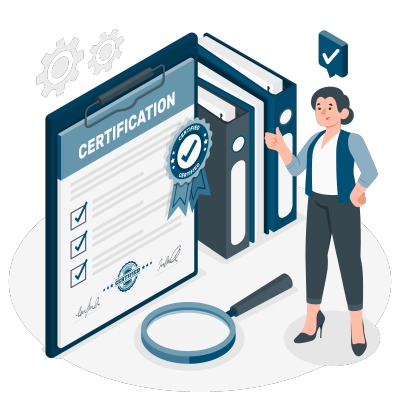It’s no secret that starting a food business can be a daunting task. But with the right planning and preparation, it can also be an immensely rewarding experience. One of the most important things to do before starting your food business is to ensure you are certified in the areas in which you will be working. Certifications not only prove your competency to potential clients but can also help you avoid costly mistakes and legal trouble down the road.
So, which certifications are required or recommended for food preparers and personal chefs? Let’s take a look.
Are Certifications Required For Food Prep Professionals And Personal Chefs?
The short answer is, it depends. No federal or state law mandates certification for personal chefs or food preparers. However, many localities have regulations surrounding food preparation, and some may require personal chefs and food preparers to obtain specific certifications before they can operate.
Additionally, while certification may not be required by law, many clients will only hire personal chefs and food preparers who can show that they are appropriately certified. This is especially true for clients who have special dietary needs or are looking for a personal chef to cater an event.
How to Get Certified
Getting certified is a relatively simple process. A number of organizations offer certification for personal chefs and food preparers, and the requirements for each vary. However, here is the typical process for getting certified:
- Research the different certifying organizations to find one that is a good fit for you.
- Complete the application process for the organization you have chosen.
- Take and pass the certification exam.
- Pay the certification fee.
- Once you have received your certification, keep it up to date by renewing it every few years as required by most organizations.
Food Prep And Personal Chef Certifications To Consider
There are several certifications personal chefs and food preparers can obtain, but not all of them are created equal. Some certificates are more widely recognized than others and some are more specialized. Below are a few of the most popular and most respected certifications personal chefs and food preparers can obtain:
- Certified Personal Chef (CPC): The CPC certification is offered by the American Personal & Private Chef Association (APPCA) and is one of the most widely recognized personal chef certifications. To be eligible for the CPC certification, personal chefs must have at least 200 hours of experience working in the food industry.
- Certified Food Manager (CFM) Certification: The CFM certification is offered by the Food Protection Manager Certification Association (FPMCA) and is a widely recognized food safety certification. To be eligible for the CFM certification, personal chefs must have at least two years of experience working in the food industry.
- Certified Master Chef (CMC) Certification: The CMC certification is offered by the American Culinary Federation (ACF) and is the highest level of personal chef certification. To be eligible for the CMC certification, personal chefs must have at least seven years of experience working in the food industry.
- Certified Nutrition Specialist (CNS) Certification: The CNS certification is offered by the International Board of Nutrition and fitness Specialists (IBNFS) and is a specialized nutrition certification. To be eligible for the CNS certification, personal chefs must have at least a bachelor’s degree in nutrition or a related field.
- Certified Food Protection Professional (CFPP) Certification: The CFPP certification is offered by the National Restaurant Association (NRA) and is a specialized food safety certification. To be eligible for the CFPP certification, personal chefs must have at least two years of experience working in the food industry.
- Certified Executive Chef (CEC) Certification: The CEC certification is offered by the American Culinary Federation (ACF) and is a specialized executive chef certification. To be eligible for the CEC certification, personal chefs must have at least five years of experience working in the food industry.
- Certified Master Pastry Chef (CMPC) Certification: The CMPC certification is offered by the American Culinary Federation (ACF) and is a specialized pastry chef certification. To be eligible for the CMPC certification, personal chefs must have at least five years of experience working in the food industry.
- ServSafe Food Handler Certification: The ServSafe Food Handler certification is offered by the National Restaurant Association (NRA) and is a widely recognized food safety certification. To be eligible for the ServSafe Food Handler certification, personal chefs must have at least a high school diploma or equivalent.
- ServSafe Food Protection Manager Certification: The ServSafe Food Protection Manager Certification is offered by the National Restaurant Association (NRA) and is a widely recognized food safety certification. To be eligible for the ServSafe Food Protection Manager Certification, personal chefs must have at least five years of experience working in the food industry.
Conclusion
There are many different personal chef and food preparer certifications available, but not all are created equal. Some certifications are more widely recognized than others, and some are more specialized. When choosing a certification, personal chefs and food preparers should consider the type of certification, the amount of experience required, and the cost.

